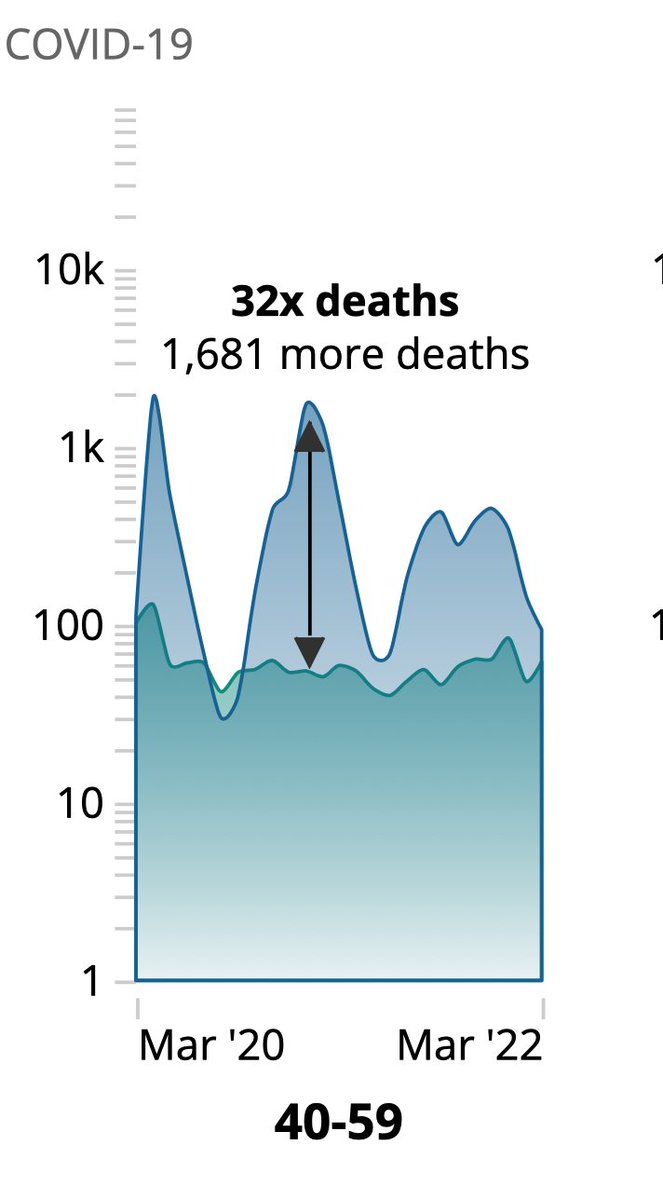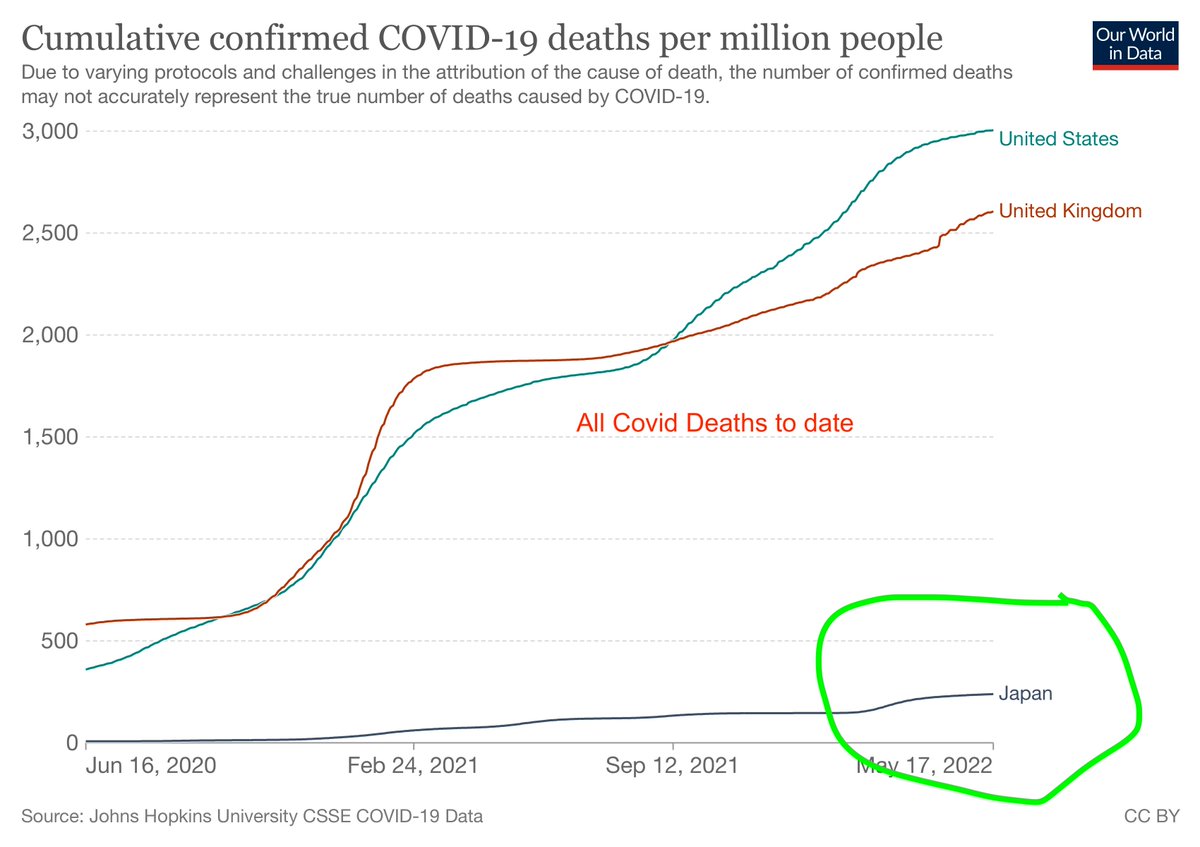
Sometimes it’s difficult for experts to admit they were wrong.
Covid wasn’t a mild infection, and “taking it on the chin” led to a lot of death and disability.
SARS2 is a very high impact virus. We should have acted sooner and should be doing more, but…
We’re kind of stuck
🧵
Covid wasn’t a mild infection, and “taking it on the chin” led to a lot of death and disability.
SARS2 is a very high impact virus. We should have acted sooner and should be doing more, but…
We’re kind of stuck
🧵
There are of course just bad scientists and crooked advisers. Those who tell the boss whatever they want to hear. They find the arguments to support the bosses position.
IME, they are actually rare.
As much as we may like to believe in “evil” scientists, most believe in truth.
IME, they are actually rare.
As much as we may like to believe in “evil” scientists, most believe in truth.
Most corruption of expert opinion is more subtle and creeping. And in advisory positions, it gets tied to the job and career.
It’s where you draw the line that defines your scientific integrity.
It’s where you draw the line that defines your scientific integrity.
After the first wave most were quite confident they got it wrong.
And by the Alpha variant, almost all those who advised and advocated for unmitigated infections knew they got it wrong.
And by Delta almost all experts realised where we were - in trouble!
And by the Alpha variant, almost all those who advised and advocated for unmitigated infections knew they got it wrong.
And by Delta almost all experts realised where we were - in trouble!
But politicians and the minority became restless and forced the “living with it” narrative.
The data of course did not support such easing of restrictions or removing the layers of protection. But they did it anyway.
Not because of scientific advice, in spite of it.
The data of course did not support such easing of restrictions or removing the layers of protection. But they did it anyway.
Not because of scientific advice, in spite of it.
And you will note, how many scientists and advisors distanced themselves from administrations who failed to take heed at this point.
THE LINE WAS Drawn, by most.
I think the line should have been drawn earlier and publicly, but the point…we are stuck, not forgiving mistakes.
THE LINE WAS Drawn, by most.
I think the line should have been drawn earlier and publicly, but the point…we are stuck, not forgiving mistakes.
Some have quite clearly said they were wrong or openly changed position. Respect!
Some haven’t. Many know they were wrong but they are stuck. Politicians are unforgiving and the public can also hold a grudge.
Yes, a few bad opportunistic scientists remain…
Some haven’t. Many know they were wrong but they are stuck. Politicians are unforgiving and the public can also hold a grudge.
Yes, a few bad opportunistic scientists remain…
But there are no longer Zero Covid or anti-Lockdown scientists (or very few). The vast majority of us (IMO) know where the big mistakes were and that we need to do better now.
My contention: the vast majority believe we should be doing more.
I hope they get heard.
#Forgiveness
My contention: the vast majority believe we should be doing more.
I hope they get heard.
#Forgiveness
• • •
Missing some Tweet in this thread? You can try to
force a refresh






